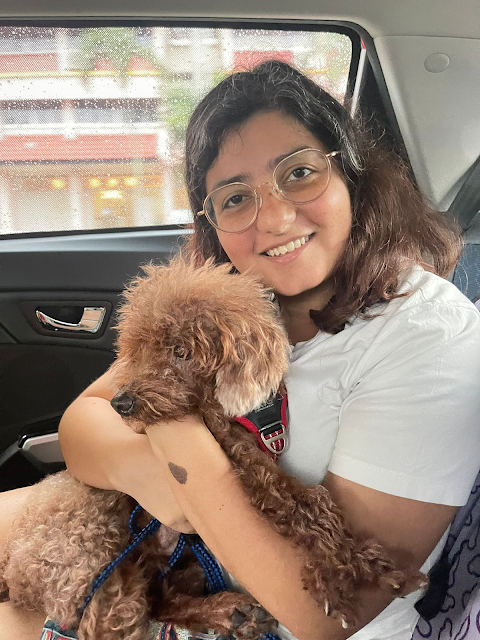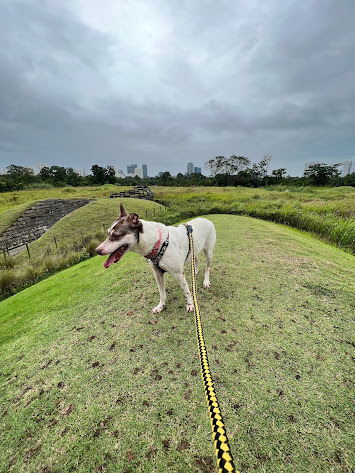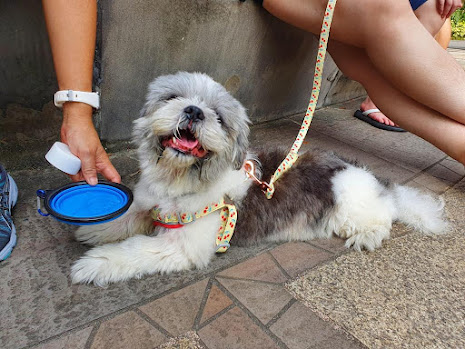Malcolm was the first surrendered dog case that I helped as a volunteer.
 |
| Malcolm, on the day his family gave up on him |
The first thing that struck me about him (a senior 10-year-old poodle), was that he seemed to be very easily following me and letting the vet handled him with no signs of distress, despite his very sad physical condition (overgrown nails, bald patches of hair, and crusty bumps all over his skin, which had turned black at some parts), and the fact that his family had just left him with complete strangers. I soon realized that Malcolm's quiet nature and lack of response was really him being completely disconnected with his surroundings, a result likely of absolutely no interaction and complete neglect from his former family. To the extent that at first we even thought he was deaf (in addition having very limited sight due to permanent cornea scarring, which could be prevented with care).
It was only when his foster (Grace) continued to talk to him and engage with him (despite us telling her that he is deaf– she never gave up!), that he started to react slowly, and we found out he could actually hear. With all the love, care, and devotion from his foster, his hair slowly started growing back (showing us that his real coat was red!), and he even learnt to follow some vocal commands.
 |
| Malcolm & volunteer, Sukriti |
Love,
Sukriti
Volunteer
Malcolm's backstory:
http://hopedogrescue.blogspot.com/2022/08/malcolm-poodle-owner-surrender.html




.jpeg)
.jpeg)
.jpeg)
